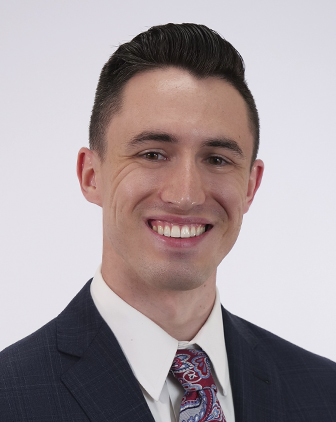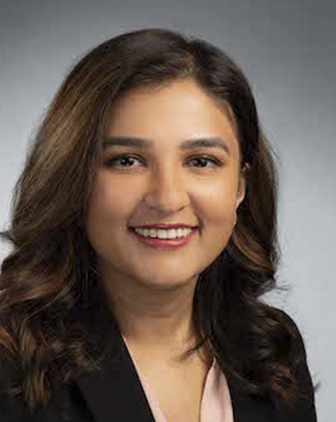
Subscribe to Pittwire Today
Get the most interesting and important stories from the University of Pittsburgh.A bond between five University of Pittsburgh School of Medicine students is fueling a movement of volunteerism during the COVID-19 pandemic.
Ben Zuchelkowski said it all started after a conversation with his research mentor, Mark Gladwin, chair of the Department of Medicine, in mid-March.
“It all happened so fast. I had a meeting with Dr. Gladwin, and we talked about how the coronavirus pandemic was putting big stresses on the health care system. It was getting scary,” said Zuchelkowski, a fourth-year med student and research scholar in the Clinical Scientist Training Program (CSTP). “We thought, ‘Wow, there’s an opportunity for medical school students to step in and fill the needs that may come up during the pandemic.’”
An hour later, Zuchelkowski texted one of his classmates.
“I felt like we had to do something. We brainstormed and pulled together some more of our friends to start organizing,” said Zuchelkowski, a Uniontown, Pennsylvania, native.
From there, Zuchelkowski and classmates Sarah Minney, Tejasvi Gowda, Carly O’Connor-Terry (A&S ’16) and Jane Kwon put their heads together. “We’ve all been friends since the beginning of med school,” he said.
With medical school rotations shut down due to COVID-19 and while working on any lab work they can from home, Zuchelkowski and his classmates have found new ways to put their skills to use.
“I am encouraged by our students’ volunteerism and commitment to coming back to the clinic and engaging as much as possible as student leaders,” said Gladwin.
Leveraging digital resources
Practicing social distancing, the friends quickly collaborated using online tools like Zoom, Slack and Google Drive to hold meetings around the clock to come up with ways to help the community.
“We decided the best thing to do was play on everyone’s strengths and offer help in different areas of life that are being impacted by the crisis. We all have diverse experiences to bring to the table,” said Zuchelkowski.
So far, the friends have recruited over 200 medical school students spanning three medical schools—including New York University Grossman School of Medicine, Lake Erie College of Osteopathic Medicine, along with Pitt—to assist in their volunteer efforts. These include arranging and providing child care support for medical professionals along with providing staffing for a Pittsburgh health care clinic that was at risk of shuttering. (Pittwire will share stories about these efforts in the coming weeks.)
Another active effort, led by Gowda, is the delivery of critical medications to those who cannot leave their homes.
‘Within five minutes…’
During her undergrad years and into medical school, Gowda volunteered at the Birmingham Free Clinic in Pittsburgh’s South Side neighborhood. She said the clinic was on her mind when COVID-19 hit the city.
“The clinic has a program where uninsured patients can come in and get truly life-sustaining medication. During this time, we reached out to them to see how they were managing,” said Gowda, a native of West Windsor, New Jersey.
The clinic is currently closed to in-person visits to reduce risk to its patients and staff of COVID-19. But after speaking with Birmingham’s clinical director Mary Herbert, Gowda learned there was still a way to help: door-to-doorstep delivery of lifesaving medications.
Quickly, Gowda solicited help from her peers through various Pitt Med student Facebook groups and email lists. The response, she said, was overwhelming.
“Within five minutes of posting, the slots to volunteer were completely full,” said Gowda. “People were texting me afterwards asking if there was any way to help, disappointed that the spots were full.”
Life-sustaining medication
According to Herbert, Birmingham is the only place where many of their patients can obtain their lifesaving medications and home monitoring supplies.
“At Birmingham, so many of our patients could never afford just to purchase their medications at a pharmacy—between one-third and one-half of our patients have one or more chronic conditions such as hypertension, diabetes, asthma or a combination of these,” she said.
To be without these medications would greatly increase her patients’ chances of winding up in the emergency room or worse, Herbert said, and she is “beyond grateful” that Gowda and her student colleagues have stepped in to help.
“Many of our patients live far away, as we have had deliveries in the South Hills, Charleroi and Penn Hills areas,” she said.
Herbert said as of March 27, there have been nine deliveries and “many more to come.” Approximately 25 students are available to help.
Organized by Gowda, students signed up to work three-hour shifts and be on-call to deliver medications to people around Pittsburgh. Students are still practicing social distancing and taking proper safety protocols, said Gowda.
“The clinic has masks, gloves and hand sanitizer that they give our volunteers, and we pass along the CDC guidelines for Allegheny County to our volunteers to make sure they’re aware of how to stay safe.”
Logistically, the volunteers drive from home to home in their vehicles, but do not enter the homes of any of the medication recipients. According to Gowda, upon parking their vehicle, the volunteer calls the clinic to let them know they’ve arrived at a recipient’s home, and the clinic then calls the person to come outside to retrieve the medication while maintaining social distancing.
The week of March 30, Gowda said she was working to incorporate the addition of a box of food along with the medication delivery. The idea comes with help from Thuy Bui, associate professor of medicine and director of the Social Medicine Fellows program and the home visit initiative at the School of Medicine. (Bui’s efforts with the program to bring food to those in need started even before the COVID-19 crisis; read more about them in the winter 2019 Pitt Med magazine.)
Gowda said she hopes the addition of the food, along with the medication, will “be a great way to address more of our patients’ social needs.”
Staying motivated
On a personal level, Gowda said that connecting with Zuchelkowski and her friends is helping her emotionally through the pandemic.
“Right now is a stressful time for many people. It feels overwhelming to be in times time of unknown, but to have my other four close friends to keep me motivated is very special to have,” said Gowda. “It keeps me happy.”




